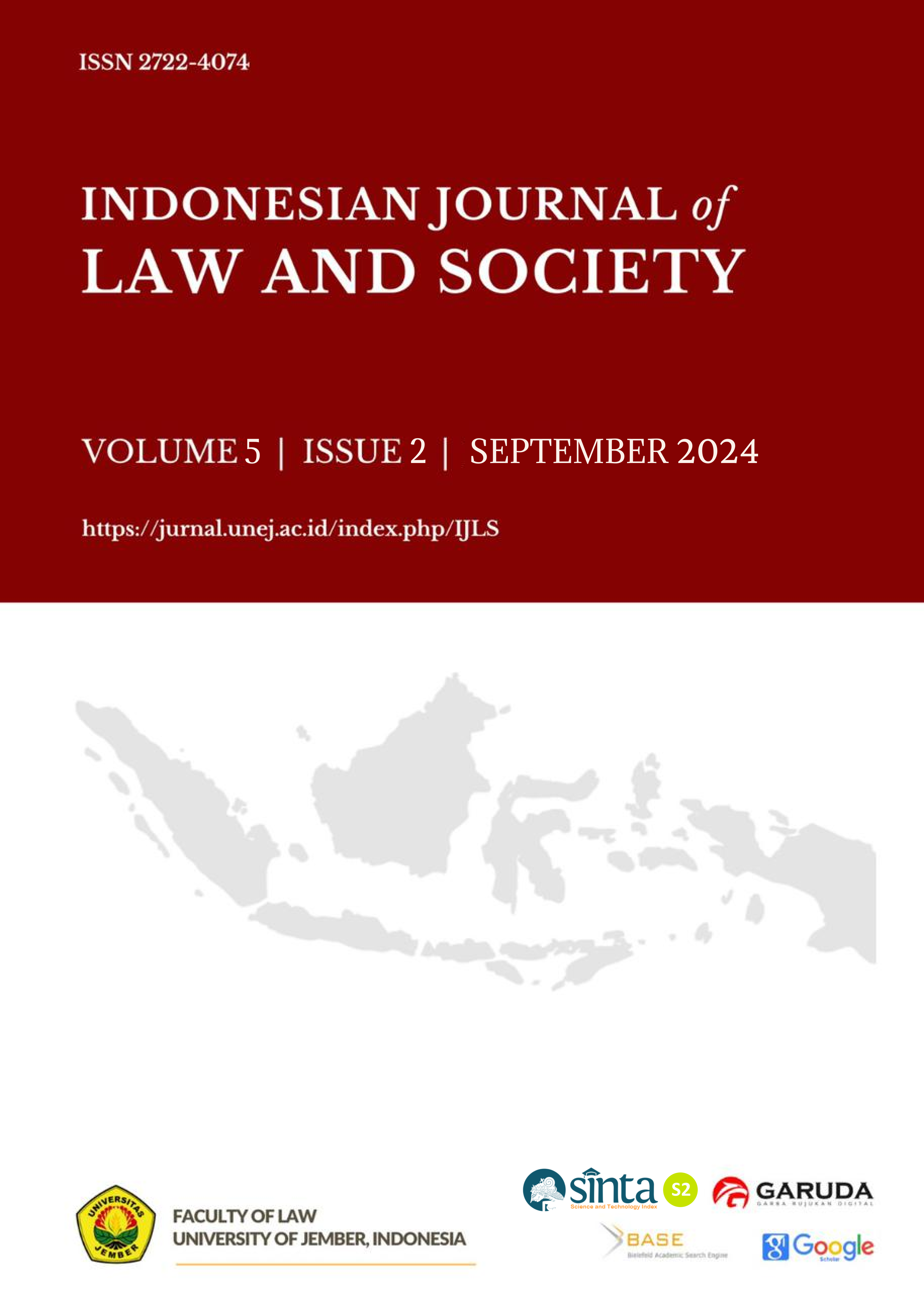Creative Economy and Cultural Heritage Governance
The Paradox of Demolishing Martial Arts Monuments in Madiun
DOI:
https://doi.org/10.19184/ijls.v5i2.49219Abstract
This study investigates the social consequences of issuing a letter from the East Java National and Political Unity Agency (BAKESBANGPOL) Number 300/5984/209.5/2023, which ostensibly aims to manage conflicts between martial arts schools. However, it has inadvertently undermined the creative economy development program. The BAKESBANGPOL letter was a provincial government intervention to an oversimplified approach to conflict resolution by demolishing martial arts school monuments. The research uses Ethnographic methods and Foucault's perspective, which emphasizes the text's intertextuality and the diversity of social contexts. This research finds that government policy represents a failure of the power system to recognize the cultural practices of civil society. It is because the exerted power cannot fully control the subject of power or the counter-power articulated by martial arts schools. In contrast, the Madiun City Government optimizes the creative economy's potential by promoting the city as a martial art. The frequent construction of martial arts statues contradicts the demolition of martial arts monuments, highlighting the tension between disciplining and fostering the cultural economy. This contradiction raises essential issues regarding the limits of government power to construct a surveillance system and the presence of civil society subjectivity. As a result, social spaces become fields where tactics developed to negotiate the domination of the local and provincial government power. Thus, this research argues that the representation system of civil society within governance does not fully guarantee equality, consensus, or continuity. The letter highlights dynamic power relations structured through spatial politics, characterized by the inseparability between the state apparatus and elements of civil society. Hence, the government must articulate an inclusive strategy that recognizes cultural practices and allows creative economy programs to evolve.
Downloads
Downloads
Published
Issue
Section
License
Copyright (c) 2024 Indonesian Journal of Law and Society

This work is licensed under a Creative Commons Attribution 4.0 International License.
The Indonesian Journal of Law and Society has CC-BY-SA or an equivalent license as the optimal license for publishing, distributing, using, and reusing scholarly work. Authors who publish with this journal retain copyright and grant the journal right of first publication with the work simultaneously licensed under a Creative Commons Attribution-ShareAlike 4.0 International License that allows others with permission from the publisher to share the work with an acknowledgment of the work's authorship and initial publication in this journal.


